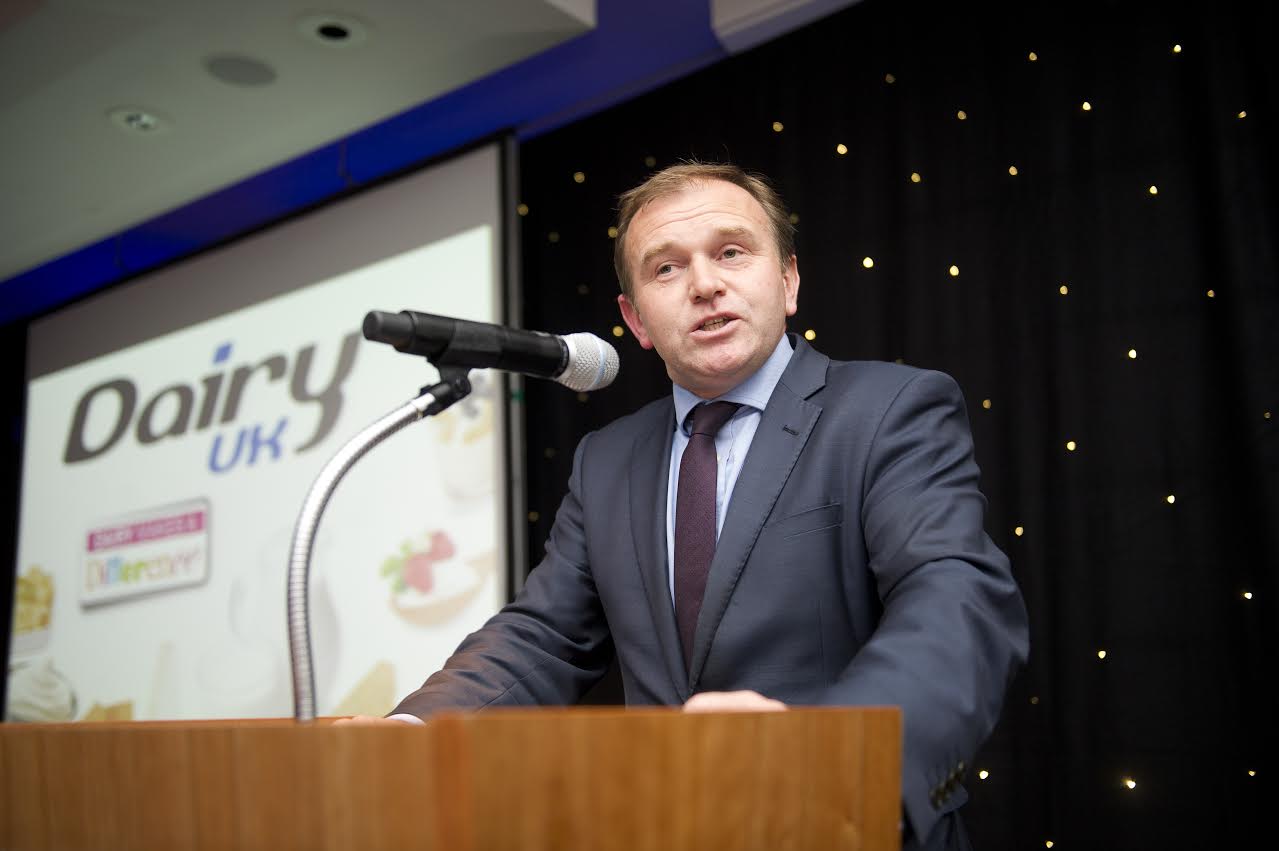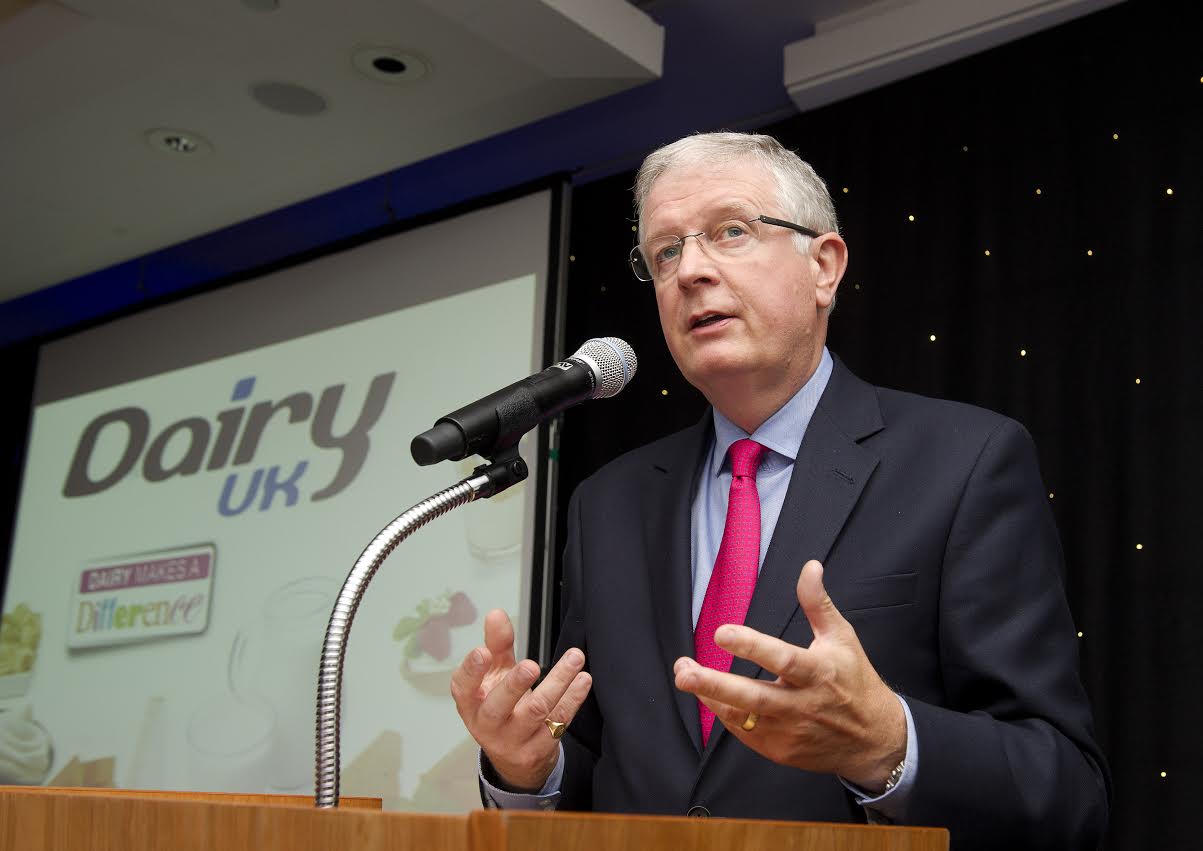
The UK dairy industry has tremendous potential for growth on a global stage, and the ambition and determination to succeed, said Dairy UK Chief Executive Dr Judith Bryans.
The growth opportunities to boost dairy exports were highlighted during the annual Dairy UK seminar – ‘Going Global: Exports and Dairy’s Future’ – held today in London.
Dr Judith Bryans, said: "Exports are a crucial part of growing and strengthening the dairy industry.
"The events of the last few days are bound to have a profound impact on our industry and we must ensure we take all the right steps to make our sector more resilient, competitive and profitable.
"Other dairy exporting countries have followed successful paths and set interesting examples in terms of industry-government cooperation to foster growth and develop exports.
"We can learn from these experiences and ensure that the UK has efficient and cost-effective systems that support export growth while preserving consumer confidence in the safety and quality of UK dairy products.
'Market led and innovative'

"In the wake of a momentous event in UK modern history, more than ever before do we need to ensure that the UK dairy industry is market led and innovative, that it is internationally competitive and best in class and most important of all, that it is open for business wherever that business takes us.
"We need everyone along the total supply chain to be aligned to our end customers’ requirements and we need Government and other key stakeholders to share our vision and support us in achieving it.
"It is essential that we promote British dairy products at home and abroad with all the help we can get from Government.
"If we are going to go it alone and successfully compete in the global market, then we need a level playing field.
"I must also convey the very deep feeling across our industry that the UK Government and all devolved Governments need to reiterate their unconditional support for the dairy industry.
"The dairy industry contributes so much to the UK in terms of jobs, investment and most important of all.
"It is an industry which provides the nation with a wide range of nutritious foods that people enjoy and embrace as part of their everyday diet.
"The lesson we hopefully have learned from the last two years is that although our industry has good long term potential for growth, output growth has to be in line with the growth in global demand.
"If we want to grow faster than this, we need to stimulate demand and grow our market share at home and abroad.
"We have an outstanding industry with world-class products which is investing in its future.
"Our people have the ambition, the determination and the skills to succeed. We will tell the world that the UK dairy industry is very much open for business, that it is ready and willing to play its part in building a strong British economy.
"And most important of all, that it is committed to creating a successful future for all our farmers, employees and all of us in this outstanding industry."
Throughout the day experts from the UK and global dairy industry discussed how to make current export systems more efficient and cost-effective.
Backing a 'dairy futures market'
Farming Minister George Eustice said: "The UK dairy industry is enormously important to us.
"That’s why we are pursuing a host of measures to help our dairy farmers deal with ongoing price volatility, including backing a dairy futures market and extending tax averaging, so they are well placed to take advantage of the growing global demand for dairy produce.
"Following Friday’s vote to leave the EU, we are now preparing to negotiate our exit. As the PM has made clear, there will be no immediate changes - until we leave the EU, current arrangements for farming and our environment remain in place.
"We clearly need to support our agriculture and rural communities - and British farming must remain profitable and competitive.
"Defra officials will be working with a dedicated unit in government to look at a future package for farmers and the environment.
"We will work with industry and the public to develop these new arrangements."
Dr Judith Bryans, Chief Executive of Dairy UK, said: "We must not forget the UK dairy industry is part of a billion strong dairy community whose livelihoods and economic stability depend on dairy.
"We have a community that provides consumers worldwide with foods and ingredients that they want and love and aims to do so in a way that protects our planet for future generations.
"We excel at what we do in the UK and we are - and will remain - a strong dairying nation playing its part on the world stage."
UK dairy exports 'growing steadily'
Paul Vernon, Vice-Chair of Dairy UK, said: "UK dairy exports have been growing steadily, satisfying the rising demand of dairy products in emerging countries.
"Our new export strategy identifies key target markets and priorities to effect real change in growth and competitiveness in the international market place.
"Our strategy puts in place a programme of recommendations and actions to create a one-stop shop for dairy exporters, remove trade barriers, establish world-class audit practise and improve the export certification regime."
During the afternoon Will Armitage of Defra’s Great British Food Unit also outlined how the Government can support the industry in order to help facilitate dairy exports and Lone T.
Mortensen from the Danish Ministry of Environment and Food spoke about dairy exports in Denmark.
Drawing on the example of Ireland, John Jordan, Chief Executive Officer of Ornua Foods Europe, said: "An effective export strategy must be deliberate – it requires focus, investment and commitment.
"It is vital to build sustainable routes and develop a strong understanding of both the supply chain and the value chain."
Jacqueline Pieters, Global Head of Food & Agri Sector Banking at Rabobank, also looked at emerging markets. She said: "There are different types of uncertainty that need to be considered when entering new markets.
"In emerging markets in particular it is important to manage countryspecific or regional risks, consider the competition, and understand what is driving demand and supply in the market."
